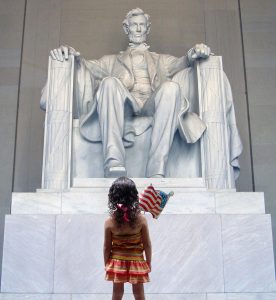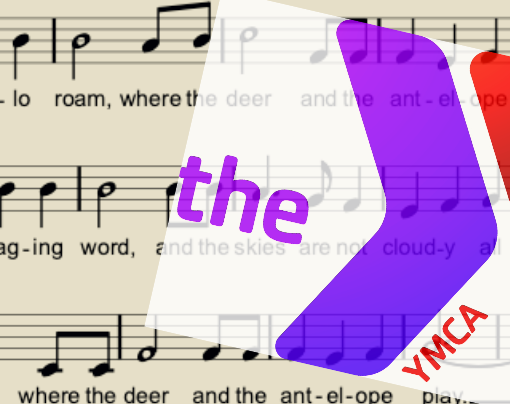 By Carol S. Hyman
By Carol S. Hyman
Sometimes we need to be reminded that common goodness lies beneath our superficial differences. Abraham Lincoln’s first inaugural address ended with an assurance that “every living heart and hearthstone all over this broad land, will yet swell the chorus of the Union, when again touched, as surely they will be, by the better angels of our nature.” A little more than six weeks later the nation embarked on a sea of bloodshed.
Americans have sailed on since then, simultaneously united and divided, tacking through periods of greater and lesser turmoil. The American experiment, like the American dream, is a work in progress, as are we the people. Most of us want to strengthen our ties to our better angels: they inspire us toward decency, tolerance, creativity, and open-heartedness.
Mindfulness can help us notice when they come calling.
When I was young and heartbroken over the first real tragedy I’d known, the Beatles lifted me from that early depression and delivered me back into the beautiful present. Once again I wanted more than holding hands, I wanted whatever life might hold. Inspiration had touched them, and through them, me: it was a blessing. The same kind of blessing I felt when I encountered Hamilton.
It is no accident, I suspect, that Lin-Manuel Miranda’s inspiration arose at this time. He said he felt like Alexander Hamilton reached out and wouldn’t let him go until he told his story. History. Our story. A story full of lessons: about how people’s behavior is conditioned by the times they live in, and how no one is entirely sinner or saint; about how folks with differing views can find a way forward, and how compromise can be the key to progress.
But progress changes. For the founders of this country, progress meant casting off an old form of governance and creating a new one. They knew that the tyranny of the majority could be as detrimental to a society’s health as that of an individual, so they set up checks and balances to help a population, the future size and diversity of which they couldn’t have imagined, keep the peace.
Progress now means casting off a different kind of tyranny, the tyranny of believing every thought we have to be true and enshrining our own opinions as gospel; this pernicious agitator has surreptitiously infiltrated our experience without our even knowing it. Mindfulness can help remedy this. Through it, we discover something about the fickle nature of thoughts.
You can’t believe everything you think.
So what is true? Even simple facts can be hard to come by when people deliberately try to deceive and confuse one another to gain temporary advantage. Weapons of mass distraction proliferate, feed fear and hatred, and gain strength when we fail to pay attention. To paraphrase Yeats, the center cannot hold when the best are often baffled and the worst, full of passionate intensity, now have a platform on desks and in pockets all across the planet.
Under such circumstances, instead of being our greatest ally, our minds often work against us, as when we project hopes and fears into the world around us, demonizing some and cheerleading for others. Science has shown that this behavior actually distorts our perceptions. When minds are scattered, or focused too fixedly, or stuck in habitual thought patterns, we squander our human resources.
Attention is the currency human beings have to spend in the marketplace of time. Mindfulness helps us capitalize on it.
When we are blind to our own biases, we see the world through a distorting filter. No matter what the particular beliefs we happen to hold might be, we have a limited perspective. We need the bigger picture, one we can gain only by learning how to work with our minds.
That involves recognizing that human beings share not only a planet and common genetic inheritance, but also a whole host of tendencies. Some are the better angels of our nature and some are not. Some foster petty, lazy, mean, and other generally fractious elements. When tendencies like these flourish unattended within our individual states of mind, they put us increasingly at odds with each other. In choosing a person of the year, Time proclaimed this the divided states of America. Tune in to mainstream and social media too much and you might believe it.
But that’s not the whole story. A brilliant Tibetan teacher, thrown by history into a strange and different culture, shared this valuable wisdom: sometimes, just before they surrender, the tendencies that hold our minds hostage may flare up as heightened neurosis. Fanning the flames won’t help. What will help is to make friends with ourselves and discover that our minds are workable. Applying mindfulness, we can explore all our tendencies, including the neurotic ones that tend to blame and complain.
We can become inquisitive instead of opinionated. And we can approach our fellow citizens, not as adversaries to be defeated, but as partners in a collaboration seeking to improve the human experience, one interaction at a time.
Doing so, we invite the better angels of our nature to remind us that the world is wide enough for all of us. Then we might actually look around and know how lucky we are to be alive right now.
Carol S. Hyman is Executive Director of Applied Mindfulness Training as well as a writer, teacher, and consultant.




